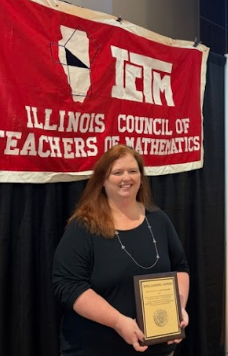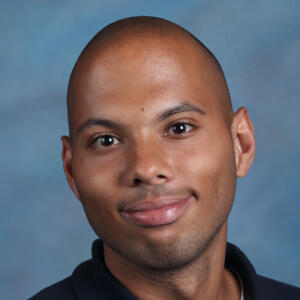OPRF experiments with science
The science track war is over. Sophomores and beyond might remember the debate about the order in which core science courses should be taken (biology, chemistry, physics versus physics, chemistry, biology). However, that is no longer a choice incoming freshmen will have to make.
Freshmen enrolled in a science class are now taking Physics-Chemistry A, as opposed to one of the three levels of either biology or physics made available in the past.
The new freshman science curriculum debuted this year as part of Oak Park and River Forest High School’s detracking initiative, which eliminates separate “college prep” and “honors” courses in favor of a single honors curriculum. Detracked courses are now available for freshmen in English, history and world languages, as well as science. Math is still a tracked subject.
OPRF built its detracking initiative on extensive research and community input. According to a 2021 FAQ posted on the school website, “curriculum evaluations” began in 2017, then a more detailed “comprehensive review of [the] freshman curriculum” took place in 2019. The FAQ described the reviewing process as “looking at data on PSAT scores, course selections, and grades, as well as holding student focus groups.”
The goal of detracking was to place all freshmen in rigorous classes consistent in its curriculum labeled as honors courses on students’ transcripts. The FAQ cited educational discrepancies across race lines, too, as a problem they hoped to solve through freshman detracking, saying, “We have not been providing enough opportunities for…our Black and Brown students to achieve at the level of which they are capable. All students deserve the opportunity to explore and determine their interests and abilities free of labels and tracks.”
Katie Kralik, a science teacher at OPRF, is a veteran of the science program and has taught regular and honors chemistry for years. She believes that a combined class is helpful in laying the foundations for a strong, well-informed science education curriculum.
“It was both difficult and rewarding,” said Kralik, of developing the new curriculum. “We had to take what we’ve been teaching as a year of chemistry and figure out what were the essential things to teach in a semester of chemistry. I focused on the chemistry half of the course; there were some other teachers who focused on the physics half.”
“Chemistry is really necessary for biology,” she added. “There’s so much about molecules and chemical reactions in biology. Chemistry is about attractions and forces, so understanding physics first is really helpful. So, doing them in that order—physics, chemistry, bio—makes a lot of sense.”
Because the new science classes are multi-subject honors courses, teachers who studied to teach high school chemistry may not have the same experience and qualifications for teaching physics, and vice versa. So many teachers had to take supplemental classes or certification tests, or acquire references in order to teach the new class.
“I already had endorsements in chemistry and biology, I just needed to get an endorsement in physics. I had enough course credits in physics that I really just had to take a test!” Kralik said. She added that it wasn’t a “big deal,” and that, ultimately, it was worth it for the sake of the course.
Science Division Head Matt Kirkpatrick spoke fondly and proudly of the teachers who were involved with the designing of the course, and emphasized how focused and driven they were in making it work. He described the teachers as having “melded into a really effective team.” Kirkpatrick said the curriculum building, workshopping and finally teaching the course was a “fairly smooth process”, but clarified that it was “arduous” nonetheless. “I would say that almost all of them would probably say that they’re working harder than they’ve worked in many years,” he added. He described the process as “learning with the students at the same time.”
In addition to a consistent freshman experience, Kirkpatrick pointed out another reason for the course: respecting students’ time. According to Kirkpatrick, the past system added an entire year of required foundational science beyond what the state required. Illinois’ secondary science courses requirements are guided by the Next Generation Science Standards. NGSS does not require one full year of chemistry and one full year of biology. In fact, NGSS requirements are more skill and concept based than discipline based, since, just as the OPRF science department found, the different science disciplines all inform each other.
In the past, OPRF students would spend three years taking foundational sciences–biology, chemistry, and physics, which Kirkpatrick and other members of the science department felt put seniors in a difficult situation. The past science track would often leave students with only their senior year to branch out into other areas of scientific study, since they had spent the three years prior in core science courses.
“We didn’t want students to have to say no to environmental science or anatomy to take physics, but at the same time, we didn’t want anybody leaving us without some physics on their transcript,” he said.
The impact of that has been seniors doubling and, tripling up on AP courses or elective science courses which can be very stressful for students. “We’re setting up a system so that they get more of an opportunity and don’t have to wait until senior year to go after those AP courses or anatomy electives,” he said.
When asked her personal opinion on the efforts to equalize the science track, Kralik said she thought it was “a great idea. I think we are going to improve it as time goes on. I mean, this is our first year, and the first year of anything is never perfect. But really, the first year of our old track wasn’t perfect, either. So I do think this common freshman experience is going to be a very good thing for our school.”






Antwann • Oct 4, 2022 at 8:44 am
As a veteran “physics first” teacher, I can say this: there is absolutely no merit to calling what a 9th grader takes as a science class as “physics” in any way, shape, or form. 9th graders are now taking 7th grade physical science. Call it what it is. The academic bar has been lowered, and “physics first” simply fancy pseudo-academic cover to allow for lowered standards and the eventual elimination of physics from the curriculum. I’m so sorry for the staff and students of this district.